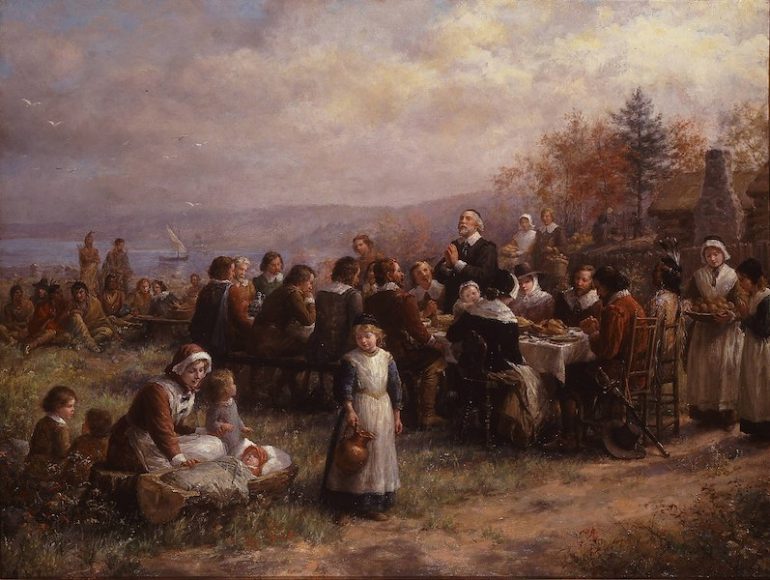As we look back on the year 2020, the word “gratitude” may not be the first to spring to mind. (Indeed, a few unprintable ones might nudge it out in the race for first place.) But perhaps it should be. It’s always been my experience that the most grateful people are among the most unfortunate. If that’s the case, then 2020 has already produced a cornucopia of thanksgiving.
Gratitude is unusual in that way. It has little to do with life’s blessings, which is not to say that people who are gifted — be it with brains, talent, character, beauty, wealth, fame, family, possessions — are unmindful or ungrateful. But rather gratitude is less about what you have — or lack — than what you are. It comes from the same Latin root as the word “grace” — gratus — meaning “pleasing, thankful.” And it rhymes with another word that is key to its meaning — attitude. Gratitude is about an appreciative attitude for life’s blessings big and small, for the disappointments and failures that turn out to be blessings in disguise and yes, even for suffering and death. In that sense, 2020 should be seeing a groundswell of gratitude.
But how can that be? People who gripe nowadays — something that is particularly easy to do in a divisive, digital culture — have legitimate complaints about the loss of life, health and employment, the rending of the social fabric as it were, in the time of corona. Still, gratitude lays a gentle finger on the arm and with another to the lips says, “Shsh. Not so.” I remember attending the funeral of a friend who died in the prime of life of kidney cancer. At the back of the church, his family had placed a journal in which he had been encouraged to record everything he was grateful for each day. In a weak, spidery hand, he had written “Grateful for the sun” in one entry. It was fittingly poignant, we all agreed, that a dying man should be thankful for another sunrise. And yet, perhaps what we failed to see was that he was straining for the light.
Gratitude keeps us straining for the light. No doubt that’s why it’s at the heart of all the world’s religions, with the high Christian sects — Roman Catholic, Orthodox, Lutheran and Anglican — centering on the Eucharist, the commemoration of the Last Supper, a word that comes from the Greek meaning “thanksgiving.”
The Pilgrims, Anglican dissenters, held what is perhaps the most famous Thanksgiving — though by no means the first in the so-called New World — at Plymouth, Massachusetts, in 1621, with about 50 settlers and 90 Native Americans. It was actually more of a harvest festival than a Thanksgiving feast, with the Pilgrims’ first real Thanksgiving following two year later in gratitude to God for an abundant rainfall that yielded a greater harvest.
This year, Thanksgiving will be an undoubtedly different affair with a virtual Macy’s Thanksgiving Day Parade, crowd-less football games and vacant chairs around the dinner table — for which we should nonetheless be thankful, psychologists say. They began studying gratitude in 2000 and, after a number of studies, have concluded that not only are grateful people happier and more satisfied with their lives, but they look to return their gratitude and pay it forward.
This is not the same thing as indebtedness, which implies an element of obligation and requirement. Rather, gratitude is indebtedness repaid with joy. I think of a moment a couple of months ago when the shop that employed my hairdresser closed for good. The employees included my former hairdresser, who had left and returned and who happened to encounter me there on one of the lowest days of my life 11 years ago. I had lost my job, and I was caring for my beloved aunt, who was dying. Not exactly a moment of high gratitude, but my former hairdresser reminded me that all this was merely a cocoon from which I would emerge as a butterfly.
Things did work out exactly as she said, but now here she was in a cocoon, encased in the shock and sadness of losing a job she had grown up in. Despite seeing this, I left the shop without more than a passing goodbye. But as I ran other errands, I thought the better of it and headed back, only to encounter her in the parking lot.
I reminded her that 11 years before on very bad day, she had spoken words of comfort and inspiration. And now, I said as I slipped a tip into her pocketbook, I wanted to do the same. Your life may not get easier, I said, but it will get better.
Then we both started to cry and she, a compulsive hugger, hugged my back, so we wouldn’t be face-to-face. I left her feeling strangely content.
“That was a debt you owed her,” my uncle said to me on the phone later than night.
But it was more than that. It was a moment to say simply “thank you” — which I realized were all the words you need in blessing and farewell.






